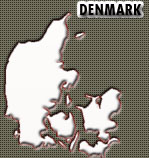Troubled Greenland looks inward amid greater autonomy
 Copenhagen/Nuuk, Greenland - "I'm a genuine product of Danish Greenland and was actually programmed to fail," Greenland's new Premier Kuupik Kleist remarked.
Copenhagen/Nuuk, Greenland - "I'm a genuine product of Danish Greenland and was actually programmed to fail," Greenland's new Premier Kuupik Kleist remarked.
Born in 1958, the embodiment of a "lapse" by a craftsman from Denmark, he was first forced into a foster family and then packed off to his Arctic homeland's former colonial master, where drug addiction nearly ruined him.
Today Greenlanders pin their hopes on him.
On Sunday in Nuuk, the semi-autonomous island's capital, Kleist will preside over a giant step by Greenland away from Danish dominance when he and Denmark's Queen Margrethe II officially mark the expansion of "hjemmestyre" ("home rule") into "selvstyre" ("self- rule").
Kleist was swept into office by his sensational election victory earlier this month over the founders of Greenland's autonomy movement, now decried as corrupt. In the opinion of many Greenlanders, they feathered their nests with the generous subsidies from Copenhagen, neglecting the massive social ills among the island's 56,000 inhabitants.
A typical ex-colony, Greenland is struggling with a very high suicide rate, widespread domestic violence, child abuse and alcoholism. "We closed our eyes to these problems for too long," said Kleist, leader of the leftist party Inuit Altaqatigiit (IA).
He knows the problems firsthand. In 1957, his father impregnated his mother, a deaf and dumb member of the indigenous Inuit people, and left her soon afterward. The Danish authorities took Kleist away from his mother and entrusted him to a foster family.
He turned out to be a talented boy, and since continued schooling was only possible in Denmark, that is where he was sent at age 11 - alone and with no knowledge of Danish.
Kleist returned to Denmark in the early 1980s for university studies, but drug abuse nearly undid him. He barely managed to straighten out his life, worked several jobs in his homeland and found success as a singer. His countrymen dubbed him Greenland's Leonard Cohen on account of his deep, smoky voice.
When Queen Margrethe, who is extremely popular in Greenland, has finished celebrating the islanders' expanded autonomy with them over the weekend, Denmark will retain control of defence, foreign and monetary policy only.
Full independence will remain a distant dream so long as Greenland needs the annual "block grant" of 3.2 billion Danish kroner (430 million euros) from Copenhagen, which covers nearly half of all public expenditures.
The government in Nuuk could get by without any subsidies only in the event that oil and other natural resources under Greenland's permafrost and off its coast are exploited. If and when that happens depends on commodities prices and climate change.
But Kleist is less interested in exciting his countrymen with "grand visions" of national independence than in focusing on the massive social ills currently plaguing Greenlandic society.
"You can't play the saint now," the Copenhagen-based newspaper Politiken quoted him as saying. "It would be a crime considering the distress that we've got to deal with here." (dpa)